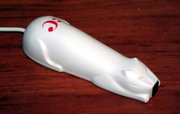Sustainable Companies
November 20th, 2006 by Hugh
Here’s a speech which I think is worth quoting at some length:
Many people seem to think that companies only exist to make money.
Well, companies do need to make money – to reward those who trust us with their capital and also to enable us to invest for the future. No business can exist for long unless it makes money.
But making money really isn’t the purpose of business.
Our purpose is to supply the goods and services which people want to buy at a cost they can afford. If a business can’t meet the needs of its customers it will cease to trade.
Those needs, of course, are not expressed through a single transaction. Business is about meeting customer needs again and again over a long period of time and building a relationship which enables the business to respond as the needs change.
That means that to be a sustainable business you have to look at the challenges which are facing your customers.
You have to examine the things which threaten the sustainability of the relationship. And in a spirit of mutual advantage you have to examine what you can do, as a business, to remove those threats. To make the relationship sustainable. To ensure one transaction leads to another, and another.
That’s about relationships with individual customers and with the communities of which we are part.
Business is part of society. Business is affected by what is happening in society and business can and should be an active agent of change and progress. Meeting challenges and offering new and better choices.
I’ve often heard Exbiblio’s Martin King say similar things, but this quotation is from a speech by the CEO of the world’s third largest oil corporation, BP. The speech by Lord John Browne was entitled, “Sustainability – A Pracitcal Agenda.”
It’s always nice to know that you are in good company

 This is a story about a scanner device that was mentioned in an anonymous comment on this blog. I thought it was worth reading up a little more about it. It’s a failure story – but there’s always something to be learned from others’ mistakes (and your own!).
This is a story about a scanner device that was mentioned in an anonymous comment on this blog. I thought it was worth reading up a little more about it. It’s a failure story – but there’s always something to be learned from others’ mistakes (and your own!). 


 Last Sunday, the people of war-torn Congo queued up at the
Last Sunday, the people of war-torn Congo queued up at the